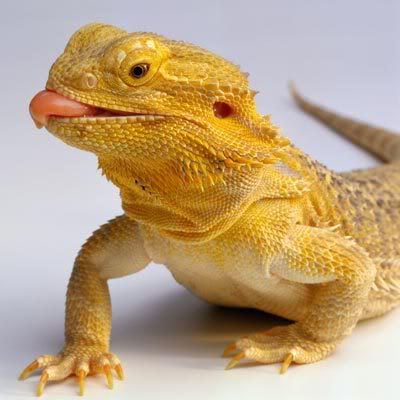Bearded Dragon Skin Diseases: Symptoms, Causes, and Treatment
Introduction
Bearded dragons are one of the most popular pet reptiles, and for good reason. They’re easy-going, friendly, and can be a lot of fun to care for. However, just like any pet, bearded dragons can suffer from various health issues. One of the most common health problems they face is skin diseases. In this article, we’ll take a closer look at some of the most common bearded dragon skin diseases, their symptoms, causes, and treatment options.
Symptoms of Bearded Dragon Skin Diseases
Bearded dragon skin diseases can cause a wide range of symptoms, some of which are more severe than others. Here are some of the most common symptoms to look out for:
- Bumps or lesions on the skin
- Redness or inflammation of the skin
- Discoloration or darkening of the skin
- Dry, flaky skin
- Excessive shedding
- Open sores
- Foul odors coming from the skin
Causes of Bearded Dragon Skin Diseases
There are many different factors that can contribute to the development of skin diseases in bearded dragons. Here are some of the most common causes:
- Poor nutrition
- Lack of proper lighting or heat
- Humidity that’s too high or too low
- Unclean living conditions
- Parasitic infections
- Bacterial infections
- Fungal infections
Common Bearded Dragon Skin Diseases
1. Mites and Parasites
Mites and parasites are some of the most common causes of skin diseases in bearded dragons. They can cause a wide range of symptoms, including redness, inflammation, bumps, and lesions on the skin. They can also cause excessive scratching and shedding.

To treat mites and parasites, it’s important to first isolate your bearded dragon from any other pets you have. Then, you should consult with your veterinarian to get a proper diagnosis and treatment plan. Some medications can effectively kill mites and parasites, but it’s important to follow your vet’s instructions closely.
2. Metabolic Bone Disease
Metabolic bone disease is a common condition that affects bearded dragons. It’s caused by a lack of proper nutrition or a lack of proper UV lighting, which can lead to weakened bones and deformities. Symptoms of metabolic bone disease can include bumps or lesions on the skin, deformities in the limbs and spine, and difficulty walking.

To treat metabolic bone disease, it’s important to consult with your veterinarian to develop a proper diet and lighting regimen for your bearded dragon. Your vet may also recommend calcium and vitamin D supplements to help strengthen your bearded dragon’s bones.
3. Dermatitis
Dermatitis is a condition that causes inflammation and irritation of the skin. It can be caused by a variety of factors, including poor nutrition or unclean living conditions. Symptoms of dermatitis can include redness, inflammation, and lesions on the skin.
To treat dermatitis, it’s important to first identify and eliminate the underlying cause. This may involve making changes to your bearded dragon’s diet or environment. Your vet may also recommend topical medications to help reduce inflammation and promote healing.
Prevention Tips
Preventing skin diseases in bearded dragons is often easier than treating them. Here are some tips to help keep your bearded dragon healthy and free from skin diseases:
- Ensure your bearded dragon has a well-balanced diet that includes plenty of vitamins and minerals
- Provide your bearded dragon with the proper lighting and heat that they need to thrive
- Ensure the humidity levels in your bearded dragon’s enclosure are within the recommended range for their species
- Clean your bearded dragon’s enclosure regularly to prevent the buildup of bacteria and parasites
- Regularly inspect your bearded dragon for any signs of skin disease, and consult with your veterinarian if you notice anything unusual
Conclusion
Bearded dragons are great pets, but like all pets, they can suffer from various health problems. Skin diseases are one of the most common conditions that bearded dragons face. However, with proper care and treatment, most skin diseases can be successfully managed or even cured. If you’re concerned about your bearded dragon’s skin health, don’t hesitate to consult with your veterinarian for advice and treatment options.
